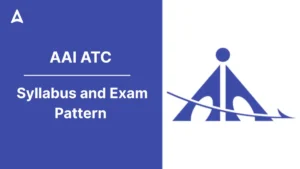Dear Aspirants,
Test your Professional Knowledge of HR with this questionnaire to prepare for IBPS HR Officer Examination. To score in IBPS SO (HR) Mains candidate must have adequate knowledge of Industrial Relations, Job Evaluation, Human Resource Planning, Labour Laws, Training and Development and more. This quiz covers important chapters of HR to help you prepare for the exam.
Q1. In which of the following legislations, there is mention of “Principal employer” and “Immediate employer”?
(a) Industrial Disputes Act, 1947
(b) Trade Unions Act, 1926
(c) Contract Labour (Abolition and Regulation) Act, 1970
(d) Industrial Employment (Standing Orders) Act, 1946
(e) Payment of Bonus (Amendment) Act, 2015
Q2. Which of the following legislations was amended to incorporate a separate chapter on safety for hazardous occupations as a result of Bhopal Gas Leakage?
(a) Mines Act
(b) Factories’ Act
(c) Plantation Labour Act
(d) Shops and Commercial Establishment Act
(e) Contract Labour Act, 1970
Q3. Which of the following statements is correct for the Trade Unions Act,1926 ?
(a) It provides only for registration of Trade Unions.
(b) It provides only for recognition of Trade Unions.
(c) It provides both for registration and recognition of Trade Unions.
(d) It provides rights to the individual workers.
(e) All of the above
Q4. The provision of “Protected Workmen” is given under :
(a) Factories’ Act, 1948
(b) Mines Act, 1952
(c) Industrial Disputes Act, 1947
(d) Payment of Bonus Act, 1965
(e) Plantation Labour Act, 1951
Q5. Structural planning refers to:
(a) Centralized planning
(b) Laying down broad goals and strategies.
(c) Changing existing institutions or creating new ones.
(d) Fixing flexible targets
(e) Achieving short term goals
Q6. Gangplank theory of communication advanced by Henry Fayol is an example of
(a) Down ward Communication
(b) Lateral Communication
(c) Upward communication
(d) Network Communication
(e) Grapevine Communication
Q7. When the personnel department performs all the core functions and its head reports directly to the CEO then such department is called
(a) Independent Split-function department
(b) Staff Co-ordinated Extended Department
(c) Independent Integrated Department
(d) Split-function, staff-coordinated department
(e) Split-function integrated department
Q8. Which one is not a non-quantitative job evaluation method?
(a) Ranking method
(b) Grading method
(c) Point rating method
(d) Job-classification method
(e) paired comparison
Q9.The internal wage differentials and relative worth of the job for the organization are determined by
(a) Job Analysis
(b) Job Design
(c) Job Enrichment
(d) Job Evaluation
(e) Job Rotation
Q10. Which of the following refers to analysis of handwriting to determine writer’s basic personality traits?
(a) Kinesics
(b) Graphology
(c) Polygraphy
(d) 16 PF personality test
(e) Both (B) and (C)




 GA Capsule for SBI Clerk Mains 2025, Dow...
GA Capsule for SBI Clerk Mains 2025, Dow...
 The Hindu Review October 2022: Download ...
The Hindu Review October 2022: Download ...
 AAI ATC Syllabus 2025 and Exam Pattern
AAI ATC Syllabus 2025 and Exam Pattern





